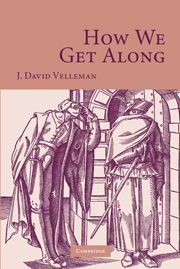6 - Theory
Published online by Cambridge University Press: 05 July 2015
Summary
I say that practical reasoning is an experimental discipline. The process of figuring out how we can enact intelligible and authentic versions of ourselves cannot be boiled down to a syllogism. It cannot be formalized in a calculus of “practitions,” means and ends, or desires and beliefs. We reason practically, in the long run, by continually trying out clearer, more coherent, and yet more ingenuous ways of being and doing; and there is no substitute for trying them out, which is a process of trial and error.
Several reasons have emerged for the necessity of experimentation. One reason is the radical holism of self-understanding, which involves a complex web of explanatory connections, such as these:
What it will ultimately make sense to do depends on what it makes sense to value, but what it makes sense to value can depend on what it would consequently make sense to do.
There are many ways of valuing things, and each must be understood in light of the rest, because they are mutually reinforcing or inhibiting.
Having understandable ways of replying to other people can depend on understanding their replies to oneself, which can depend in turn on having made oneself understood to them.
People therefore tend to converge on particular ways of acting that are understandable as the ways people act in order to be understandable in just those ways.
They make this shared way of life more intelligible by coordinating it with shared evaluative responses that follow the contours of recognizable kinds and avoid unnecessary exceptions.
Information
- Type
- Chapter
- Information
- How We Get Along , pp. 159 - 184Publisher: Cambridge University PressPrint publication year: 2009
